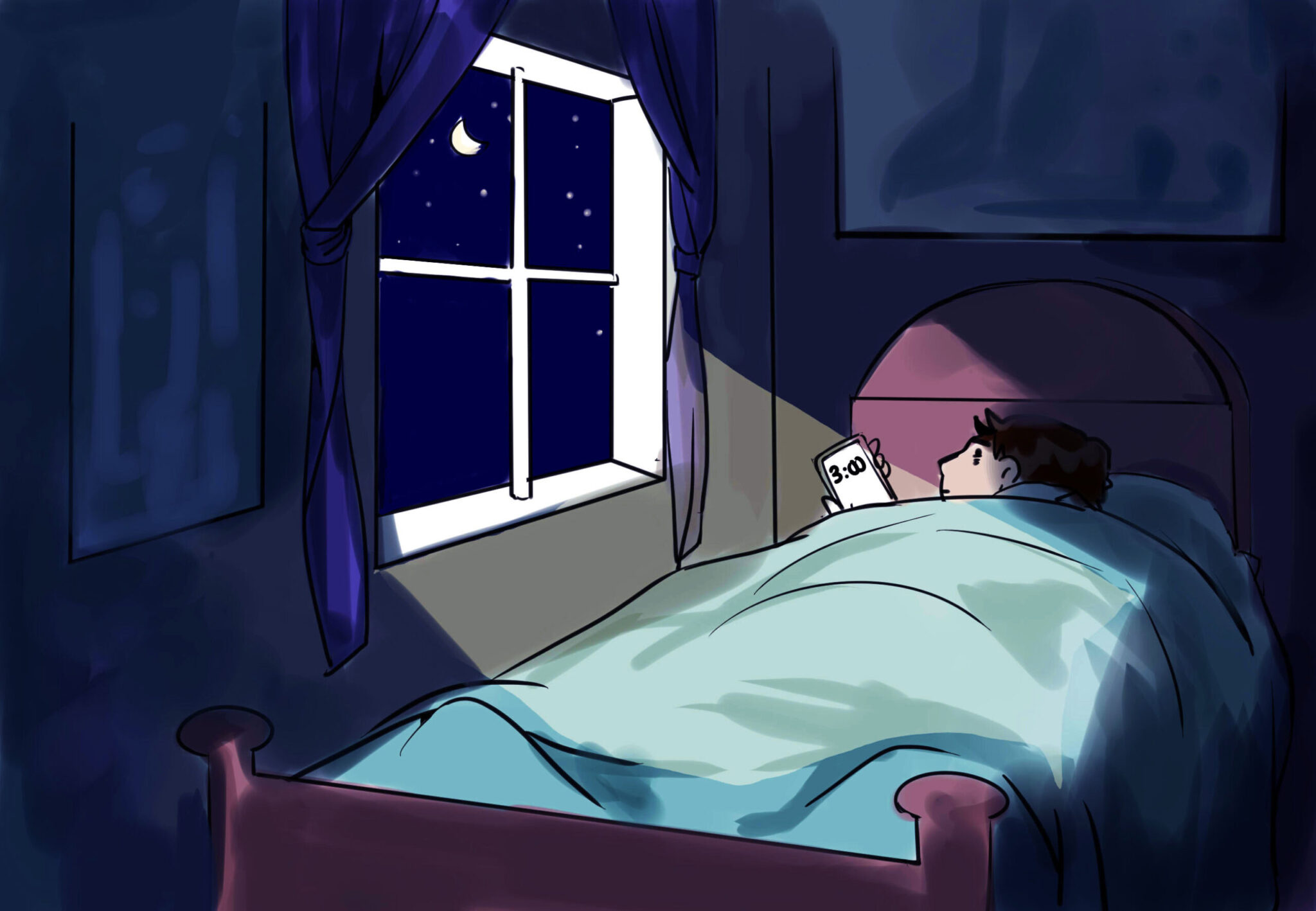Yale scientists uncover link between impaired sleep and indications of poor brain health
The research team found that poor sleep shows strong correlations with common markers of stroke and dementia.

Laurie Wang
A Yale-led study, published in late December, found a strong association between poor sleep habits and worse brain health in middle-aged adults.
Led by Santiago Clocchiatii-Tuozzo, a postdoctoral researcher in the Department of Neurology at the School of Medicine, the researchers gathered self-reported sleep data from the past nine years and neuroimaging scans from almost 40,000 middle-aged adults. Defining suboptimal sleep durations as less than seven hours and more than nine hours per night, the researchers found a link between those with poor sleep durations and neuroimaging profiles often associated with worsened brain health that precedes issues such as strokes and dementia.
“We found a significant correlation between suboptimal sleep durations and poor brain health, even after accounting for variables such as nicotine and diabetes,” Clocchiatii-Tuozzo told the News.
The researchers analyzed the presence and volume of white matter hyperintensities — subcortical brain lesions that often reveal themselves on MRI scans and are strong indicators of brain aging and reduced blood flow. They also found the average of 48 white matter tracts to create a fractional anisotropy, a statistic that indicates the brain’s overall connectivity and white matter integrity.
“We focused our attention on these neuroimaging metrics [because they] are known to precede stroke and dementia,” Clocchiatii-Tuozzo said.
According to Clocchiatii-Tuozzo, middle age is a crucial time to improve sleep duration.
He likened sleep to cardiovascular health in how it can affect one’s health in a slow-onset manner. For him, poor cardiovascular health during one’s middle ages can slowly impact different parts of their physiology.
“Likewise, suboptimal sleep during the middle ages of life could potentially affect some aspects of our physiology that lead to poor health outcomes later in life,” Clocchiatii-Tuozzo said.
Christine Won, the medical director of the Yale Center of Sleep Medicine, specializes in disordered breathing and sleep impairments in women. In an interview with the News, Won noted that sleep disorders, especially sleep apnea, become more common for women as they age because “there are so many hormonal changes that occur throughout a woman’s life span.”
More broadly, Won said that the study highlights the importance of sufficient sleep to increase healthy longevity.
“I think a lot of times people want to give up sleep for work, school, and social commitments, for example,” Won said. “This study emphasizes that we have to prioritize sleep. It’s just as important as a proper diet and exercise for longevity health.”
Andrey Zinchuk, a physician specializing in sleep medicine and critical care medicine, pointed to how other chronic health conditions can impact the quality of sleep and how sleep can shape the effect of these diseases. He emphasized that disturbed sleep and sleep apnea are associated with risks of future stroke, heart failure, and dementia.
Zinchuk said that local and state-level policy changes could help people get more sleep.
“We need to devote more attention to modifiable factors that affect sleep, and work that into primary care clinics and the way we write laws and run our workplaces,” Zinchuk said. “For example, laws that address early start times in high school can be effective methods for young adolescents to obtain enough sleep each night.”
According to the CDC, 34.6 percent of adults in Connecticut reported shorter sleep durations in 2020.







